detail profile du c5 a1an makavejev
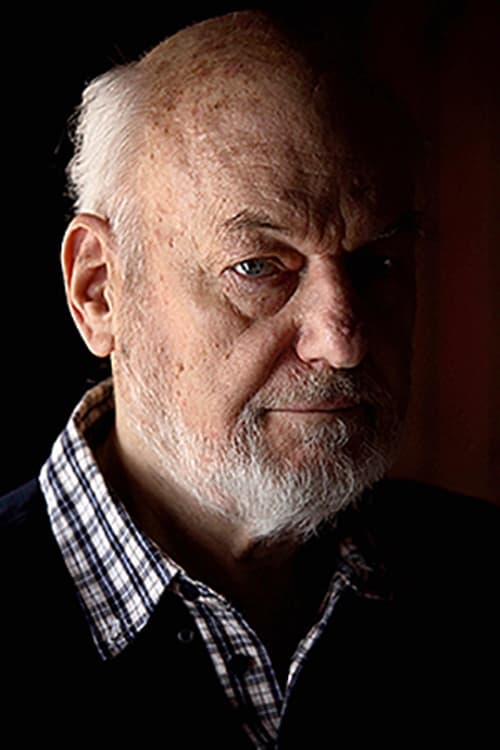
Dušan Makavejev
Dusan Makavejev
atau dikenal sebagai
Peran Yang Di Mainkan Dušan Makavejev
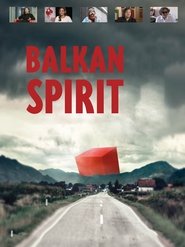 Filmmaker Hermann Vaske explores the creative...
Filmmaker Hermann Vaske explores the creative...Balkan Spirit 2013
Filmmaker Hermann Vaske explores the creative Balkan world in the hopes of understanding the meaning of "Balkan spirit".
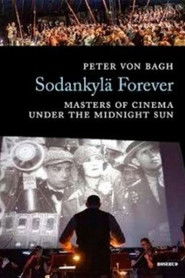 The Midnight Sun Film Festival is...
The Midnight Sun Film Festival is...Sodankylä Forever 2010
The Midnight Sun Film Festival is held every June in the Finnish village of Sodankylä beyond the arctic circle — where the sun never sets. Founded by Aki and Mika Kaurismäki along with Anssi Mänttäri and Peter von Bagh in 1985, the festival has played host to an international who’s who of directors and each day begins with a two-hour discussion. To mark the festival’s silver anniversary, festival director Peter von Bagh edited together highlights from these dialogues to create an epic four-part choral history of cinema drawn from the anecdotes, insights, and wisdom of his all-star cast: Coppola, Fuller, Forman, Chabrol, Corman, Demy, Kieslowski, Kiarostami, Varda, Oliveira, Erice, Rouch, Gilliam, Jancso — and 64 more. Ranging across innumerable topics (war, censorship, movie stars, formative influences, America, neorealism) these voices, many now passed away, engage in a personal dialogue across the years that’s by turns charming, profound, hilarious and moving.
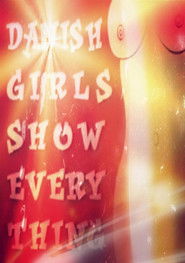 Despite its suggestive title this multipart...
Despite its suggestive title this multipart...Danish Girls Show Everything 1996
Despite its suggestive title, this multi-part Danish omnibus film is not a work of exploitation. Instead, it presents 20 different short films (back-to-back) on the general theme of Danish women, directed by filmmakers including Krzysztof Zanussi, Monika Treut, Gustav Hamos, David Blair, Vibeke Vogel, Dusan Makavejev, Morten Skallerud and Lars Norgaard. Some dramatic vignettes mix with other comedic ones, but all are offbeat and experimental. The picture includes one animated sequence (by Norgaard).
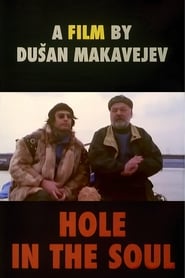 A selfportrait documentary of Dusan Makavejev...
A selfportrait documentary of Dusan Makavejev...Hole in the Soul 1994
A self-portrait documentary of Dusan Makavejev who travels to former Yugoslavia, and charts the changes of the society which parallels to his own life.
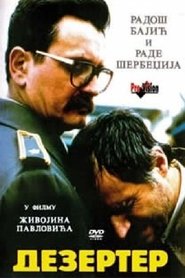 During the Yugoslav breakup Federal Army...
During the Yugoslav breakup Federal Army...Deserter 1992
During the Yugoslav break-up, Federal Army officer is fed up with war and takes some leave in Belgrade. However, it turns out that he is less haunted by war horrors than with some sentimental skeletons in the closet. He meets his former comrade and best friend who is AWOL, but can't report him because he had an affair with his wife.
 In a small European country the...
In a small European country the...Manifesto 1988
In a small European country, the king is scheduled to visit a small, quiet and "safe" village. It turns out that while the village may indeed be small, it's neither as quiet nor as safe as it's expected to be.
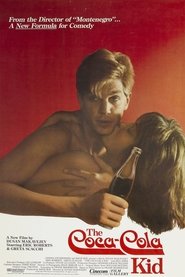 An eccentric marketing guru visits a...
An eccentric marketing guru visits a...The Coca-Cola Kid 1985
An eccentric marketing guru visits a Coca-Cola subsidiary in Australia to try and increase market penetration. He finds zero penetration in a valley owned by an old man who makes his own soft drinks, and visits the valley to see why. After "the Kid's" persistence is tested he's given a tour of the man's plant, and they begin talking of a joint venture. Things get more complicated when the Coca-Cola man begins falling in love with his temporary secretary, who seems to have connections to the valley.
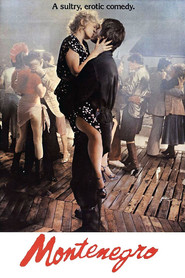 Marilyn Jordan an American lives in...
Marilyn Jordan an American lives in...Montenegro 1981
Marilyn Jordan, an American, lives in Stockholm with her Swedish husband and family. Her behavior is bizarre, perhaps mad: she poisons the dog's milk and advises the dog not to drink it; she sets the sheets afire as her husband sleeps; she crawls under the dining table to sing. While detained at airport customs for carrying pruning shears, she meets a young Yugoslav woman and goes with her to a Gypsy enclave where she's fought over, takes a lover, helps with the sordid entertainment at a bar, and returns home more dangerous than before. The film also tells parallel stories of Marilyn's daughter becoming a junior homemaker as the young immigrant practices her striptease.
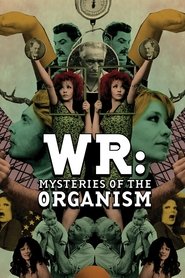 What does the energy harnessed through...
What does the energy harnessed through...WR: Mysteries of the Organism 1971
What does the energy harnessed through orgasm have to do with the state of communist Yugoslavia circa 1971? Only counterculture filmmaker extraordinaire Dušan Makavejev has the answers (or the questions). His surreal documentary-fiction collision begins as an investigation into the life and work of controversial psychologist and philosopher Wilhelm Reich and then explodes into a free-form narrative of a beautiful young Slavic girl’s sexual liberation.
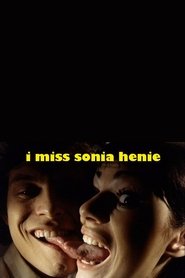 One camera in one setting one...
One camera in one setting one...I Miss Sonia Henie 1971
One camera in one setting, one attic and eight young directors – the result is a unique Dadaistic collage of seven short sketches. The original task for each filmmaker was to keep each short under three minutes, to set it in one hotel room, and to include the sentence “I miss Sonja Henie." This experimental film was shot over a single night at the international film festival FEST in Beograd in 1971.
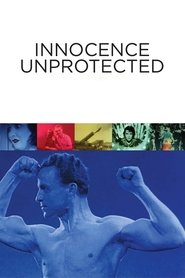 A documentary about the famous athlete...
A documentary about the famous athlete...Innocence Unprotected 1968
A documentary about the famous athlete and movie enthusiast who made Serbia's first sound film, Innocence Unprotected. The Nazi occupation of Belgrade prevented the film from gaining wider acclaim. Director Makavejev intersperses clips of the original film with interviews of surviving cast and crew members, as well as newsreel and archival footage.
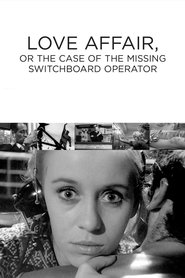 After many adventures a young female...
After many adventures a young female...Love Affair, or the Case of the Missing Switchboard Operator 1967
After many adventures, a young female switchboard operator starts a love relationship with a serious young man. But while he's away on business, she gets lonely and succumbs to her colleague's passes.
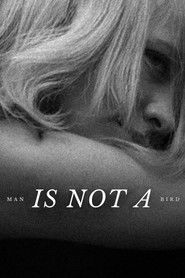 A Serbian engineer falls for a...
A Serbian engineer falls for a...Man Is Not a Bird 1965
A Serbian engineer falls for a younger woman, but he is inept at courtship.
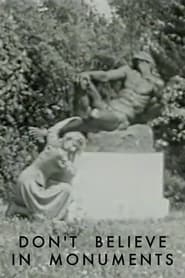 A young woman tries to make...
A young woman tries to make...Don't Believe in Monuments 1958
A young woman tries to make love to a park statue, but despite her passionate efforts, the monument remains cold and heartless. Don’t Believe in Monuments is an early short, where Makavejev subtly ridicules Yugoslav state-sponsored monument and history worship.
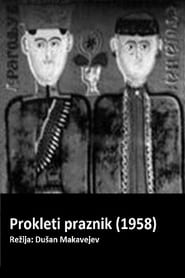 To Makavejev each tombstone is a...
To Makavejev each tombstone is a...Damned Holiday 1958
To Makavejev, each tombstone is a vicar for its resident spirit; it haunts, roams, and makes conversation.
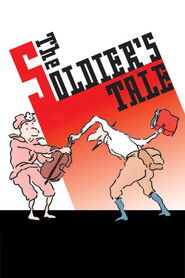 A soldier returning home from war...
A soldier returning home from war...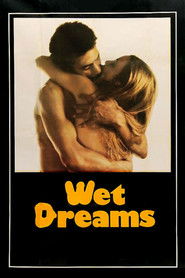 Experimental anthology film consisting of nine...
Experimental anthology film consisting of nine...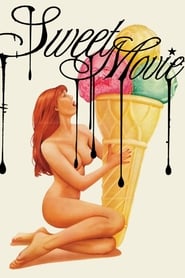 The winner of the Miss World...
The winner of the Miss World...